#learn korean language
Text
23 notes
·
View notes
Video
youtube
Korean Grammar for Beginners / Unit 19 Future tense 미래시제
3 notes
·
View notes
Text
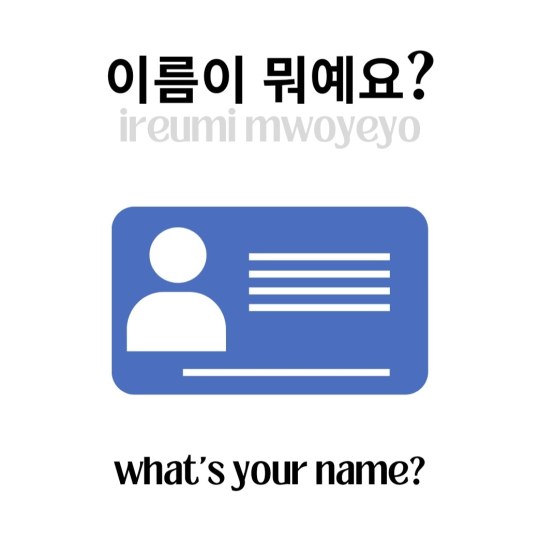
#learn korean#learn languages#korean language#korean langblr#learn korean language#learn korean with bellebelle
0 notes
Text
How long does it take to learn Korean?
Embarking on a journey to Learn Korean language can be an incredibly rewarding experience. It not only grants you access to a vibrant culture but also opens doors to exciting opportunities. In this article, we'll delve into the question that often lingers for aspiring Korean learners: "How long does it take to become fluent in Korean?" We'll also introduce you to Manjaree Academy, a valuable resource on your language-learning journey.
Is Korean Hard to Learn?
Korean is frequently associated with the complexity of East-Asian languages like Chinese and Japanese. However, it distinguishes itself by being notably easier to grasp. Unlike Chinese, Korean isn't a tonal language, meaning your pronunciation isn't tied to complex intonation patterns.
The Korean writing system, Hangul, might initially appear intricate, but it's designed for simplicity and can be mastered in as little as 20 minutes, making it an excellent foundation for pronunciation.
FSI Estimates for Reaching Korean Fluency
The United States Foreign Service Institute (FSI) categorizes Korean as a Category V language, one of the more challenging languages to learn. FSI estimates that achieving fluency in Korean would require approximately 2200 hours of study or an intensive commitment of 88 weeks. However, these estimates don't consider individual factors such as personal motivation, study methods, or your unique learning style.
How Different Is Korean From English?
For native English speakers, Korean represents a substantial departure from their mother tongue. However, this distinctiveness can be advantageous. The key to language acquisition often lies in comprehensible input, which involves considering context and progressively increasing the difficulty of your learning materials. This approach applies effectively to Korean.
The Role of Previous Language Learning Experience
If you've already learned another language, your experience can be a valuable asset in your Korean language journey. The strategies and techniques you've acquired can be applied to expedite your progress. Nevertheless, if your previous language is similar to Korean, exercise caution, as some confusion might arise.
How Are You Learning Korean?
Effective language learning encompasses four essential skills: reading, writing, listening, and speaking. While all these skills are important, prioritizing speaking is crucial for achieving fluency. Practical conversation skills are often the gateway to meaningful communication.
How Much Time Do You Have to Study Korean?
Regardless of a busy schedule, there are ways to incorporate Korean into your daily routines. Engaging in small activities such as listening to Korean podcasts or revisiting language lessons can accumulate over time and contribute significantly to your progress.
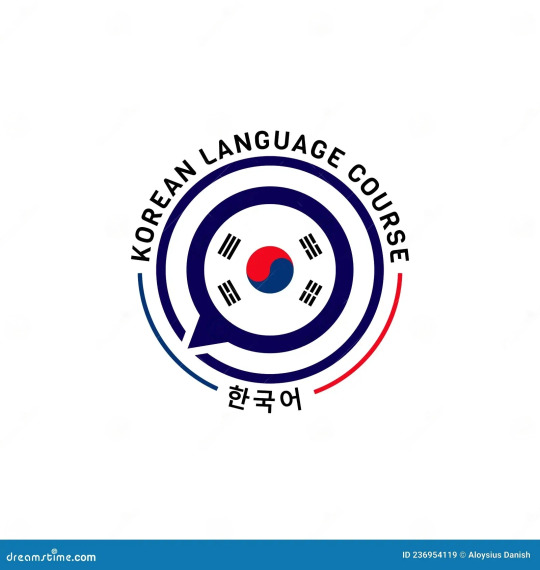
What’s Your Attitude and Motivation Toward Learning a Language?
Your motivation is a driving force in your language-learning journey. Whether you're studying Korean for language exams, travel, or personal interest, maintaining enthusiasm can substantially expedite your progress.
Can You Learn Korean in a Year?
Yes, it's absolutely possible to achieve proficiency in Korean within a year. However, the intensity of your study regimen can vary significantly. For instance, dedicating six hours a day for a year can yield remarkable results, while committing just one hour daily can lead to fluency in approximately 6.5 years. The key lies in adopting the right techniques and strategies to maximize your learning speed.
How to Learn Korean Faster with Manjaree Academy
For an efficient Korean language-learning journey, consider enrolling in Manjaree Academy, a trusted resource for language enthusiasts. Manjaree Academy offers a comprehensive curriculum and personalized learning experiences that cater to your specific needs and goals. With a team of experienced instructors, state-of-the-art learning materials, and a supportive community of learners, you can accelerate your path to Korean fluency.
Start Learning Korean Today with Manjaree Academy!
Embarking on your Korean language journey is an exciting endeavor. With the right resources, dedication, and support from institutions like Manjaree Academy, you can make remarkable progress and unlock the doors to Learn Korean language. Begin your journey today and discover the richness of the Korean language and culture.
#foreign languages#languagelearning#foreign language classes#manjareeacademy#learn korean#korean language#korean language course#korean language classes#learn korean language
0 notes
Text
This video is only available to people who are members of Acau's ( 악어 ) Youtube, but one of his fans posted a short clip Acau shared of his and Quackity's conversation testing out the QSMP translator!
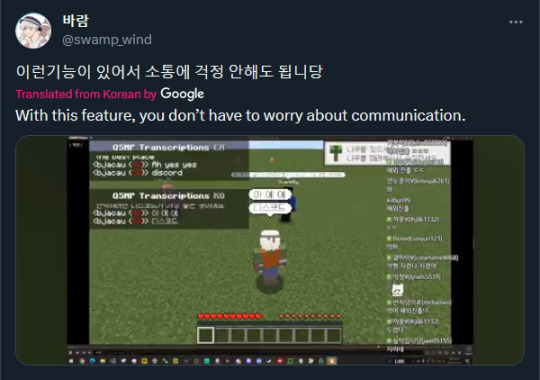
[ Original Tweet ]
#Acau#악어#QSMP#Quackity#That's so cool!#I cannot speak any Korean whatsoever but I'm very curious and excited to watch him and learn#My language knowledge is English > Japanese > Spanish#which. is ironic since I'm Mexican#but some Korean words sound very similar to a few Japanese words and it always trips me up hearing them#I'm so excited to meet 악어 and his community!!! aaaaa!!!#everyone is so excited I love seeing everyone getting so excited to share information about the streamers they love#Anyways shoutout to Gaby for the heads up about this. They don't even use Tumblr but they're wonderful
518 notes
·
View notes
Text
language learning is such a personal thing that there is no “right” or “wrong” way of doing it. it’s whatever works on bringing YOU closer to YOUR goal.
you want to watch tv shows but don’t really care for speaking with others? yay!! no speaking practice needed.
you want to learn quickly for an upcoming trip? yay! text book phrases and simple grammar.
you’re a beginner and it’s been 10 years? 2 weeks? 6 months? it doesn’t matter. as long as you are working towards bringing YOURSELF closer to what YOU want to achieve, you have succeeded: you are succeeding; you are doing great.
i find that so much demotivation comes from comparison and/or trying to follow other's advice too closely. if anki decks don't work for you, that's fine! if duolingo works well for you, then use it!
this language learning thing, it should be enjoyed. in the sea full of deceptive polyglot stories and videos on top of videos attempting to understand how to learn languages in "the fastest way possible" sometimes we should sit back and ask ourselves, "when is just learning things, enough"?
with that i hope you all continue working towards your dreams! whether you want to become a translator or just watch a few more movies in your target language, you can do it. i know you have it in you.
#langblr#studyspo#language#languages#language learning#learn chinese#learn french#learn german#learn korean#polyglot
779 notes
·
View notes
Text
Look, I knew five languages by age 19 and now I am learning like 3 more. I work as a language instructor and a consultant. If I can give language learners only one advice, this is it.
STOP LEARNING WORDS ON THEIR OWN.
You're doing yourself a disservice by learning lists of "30 words you must know!" "100 most common words!" like it literally means nothing if you cannot use those words in an appropriate context with proper grammar. So what you actually need to do is learn those words via example sentences.
Of course, sentences have more words so you may think you're learning less but you're actually learning the way to use it in context. That's what's important.
Language is about communication, which also means if you want to learn languages, you have to observe how people communicate with each other universally. Native speakers never have a list of words they know and they don't count every single new word they've learned. So why are you doing it to yourself? What native speakers do is listen to the new word, remember the context they're spoken in, and keep using that word in that context. And that's why people go "wait, you can use that word LIKE THAT?" all the time. So you, a language learner, are also allowed to do that. I'm not even saying those word lists are useless but they're the most useful AFTER you've known most of them and are trying to go over them for practice etc. Native speakers do click on those word lists to check out how many words they don't know or to remind themselves of those words or to learn some facts about each word. That should be your goal as well.
Learn sentences. Learn them in context. Do not fall into the "I must know xx amount of words or I'm a failure at language learning" trap perpetuated by bloggers or youtubers or whatever. Have fun with it!
#language learning#studyblr#langblr#100 days of productivity#chinese studyblr#japanese studyblr#korean studyblr#how to learn#learning#academia#academic#academics#language study#language#languages#study tip#study#study motivation
284 notes
·
View notes
Text
increasingly "useless" reasons why i like learning languages
@studentbyday said i should re-define "useless" in my mind. instructions unclear. made a shitpost instead 💩
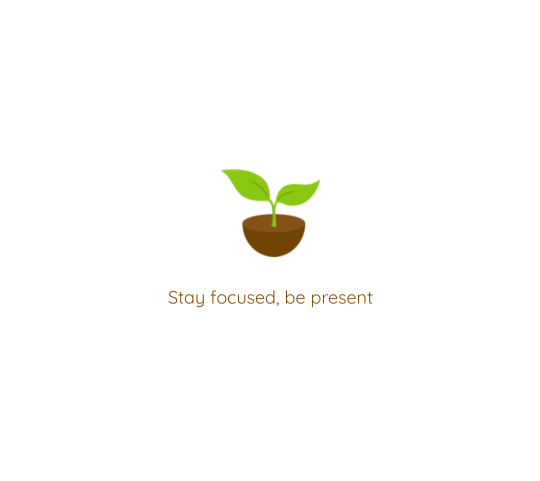
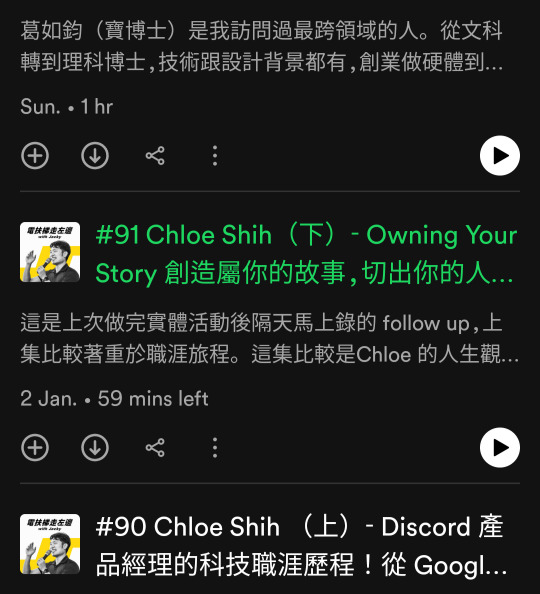

💌: inside-my-phone format is back!🍃 do you agree/disagree with my MTL rankings? what motivates you? 👀
i can be a more empathetic, understanding, and supportive person who makes sure to only cuss people out in languages they don't understand so that their feelings aren't hurt ❤️
i can talk to more people who will probably think i'm an idiot because of how badly i speak their language 👄
i can nurture my self-confidence/-esteem as long as i don't think too hard about how much i don't know 🥰
i can read more books, articles, people arguing on the internet, etc. 📚
i can travel to foreign countries more easily until someone asks me to translate something important and i mess up and land us both in prison or something ✈️
i can unlock new work opportunities until someone asks me to translate something important and i mess up and land us both in prison or something 💼
i can multitask better even though i shouldn't even be doing it in the first place 🤹♀️
i can watch my favorite shows/listen to my favorite songs without subtitles/translations so that my brain rot can continue in peace 📺
i can, on the other hand, stop losing brain cells?? 🧠
i can eavesdrop on more people, probably at the grocery store 🙉
i can show off at work and other places where it is appropriate to show off irrelevant skills ✨
sex appeal?? 🥵
#langblr#studyblr#study motivation#study inspiration#korean langblr#chinese langblr#japanese langblr#korean studyblr#chinese studyblr#japanese studyblr#learning languages#language learning#language lessons#duolingo#zesty's life#languages#multilingual#multilanguage#bilingual#motivation#humor#shitpost#self development#self improvement#study blog#study aesthetic#light academia#dark academia#chaotic academia#polyglot
290 notes
·
View notes
Text
One-Page Masterlist
안녕하세요! Hey everyone! I recently got an ask about my old masterlist, which is the same as my broken-down masterlist except it has all of my lessons on one page, rather than on multiple separate posts. Some may find this expanded version easier to navigate, so I’ll keep this up for y’all! My broken-up masterlist, of course, will still be available for those who find that more helpful :)
Hangul Lessons
Consonants
Vowels
Writing/Reading Korean Syllables
Some 받침 Rules
Diphthongs
Stroke Order
Some More 받침 Rules
Irregular Verbs
The Basics
Common Phrases
Numbers
Sino-Korean vs. Native Korean Numbers (Instagram Post)
Sentence Structure and Particles
Present-Tense Conjugations and Formal Language
Adjectives
Questions
Honorifics and Casual Language
Beginner
Negative Sentences
잘 and 못
Past Tense
Future Tense (-ㄹ / 을 것이다)
-ㄹ / 을 까요? (Shall we…? / I wonder…?)
-(으)세요 (Giving Commands / Asking Questions)
Telling Time
-고 ��다 (I want to…)
How to Say “And”
-지만 (However)
아/어/여서 (So…)
Negative Commands
Spacing (띄어쓰기)
Adverbs
ㅂ Irregular
Comparatives and Superlatives
난, 날, & 내가
Upper-Beginner
-(으)면 (If…)
아/어/여도 (Even though…/Even if…)
(으)면 되다 / 아/어/여도 되다 (I can…/You may…)
-아/어도 되다: Asking for and Giving Permission (Instagram post)
-(으)면 되다 & -(으)면 안 되다 (Instagram post)
아/어/여야 되다 and 아/어/여야 하다(Have to / Should)
Present Progressive (-고 있다)
How to Say “Or”
-아/어/여하다
All About 중
How to Use -(으)로
Before & After
-ㄴ/은 채로
Intermediate
Describing Nouns with Verbs (-는 것)
Describing Nouns with Verbs - Past & Future Tense (-ㄴ/은 / -ㄹ/을 것)
Nominalization
것 같다 (I think… / It seems…)
-러 가다 / -러 오다
-(으)려고 (In order to…)
-기로 하다 (to Decide to do Smth)
척하다 (To Pretend)
-게 되다
-군요 / -구나
아/어/여 보다 (to try…)
-은/ㄴ 적 있다 / 없다 (I have / have not)
-ㄹ/을 게요 (Future Tense)
겠다
-ㄹ/을 수 있다/없다 (I can / cannot)
-ㄹ/을 때 (When…)
-ㄴ/는다면 (If)
-(으)면서 and -(으)며
-(으)니까 (Because / So)
-아/어/여주다
-(ㄴ/는)다 (Narrative Form)
Quoting
Let’s…
Quoting continued
(으)ㄹ래요? (Wanna…?)
-죠
-대로
More Quoting - 대 & 래
잘하다 & 못하다 vs. 잘 하다 & 못 하다
-아/어 가지고
-(으)려면
-는 길에 & -는 길이다
-(으)면 vs. -ㄴ/는다면 (Instagram Post)
-았/었을 것이다
-느라고
-는 데(에)
-ㄹ/을 뻔하다
Upper-Intermediate
-ㄴ/는데
-(으)ㄴ/는지 (Whether or not)
-(이)라는…
All About 아무리
-잖아요
Expressing Surprise
-시 (Honorific)
Making Comparisons
-아/어/여지다
I might…
So that…/To the point where…
Causative Verbs
시키다
Passive Verbs (part 1)
Passive Verbs (part 2)
-ㄴ/은가 보다 & -나 보다 (I guess…)
-ㄹ/을수록
Other Meanings of 싶다
-자마자 & -는 대로(As soon as…)
-긴 하다
-치고
-김에
차라리 (Rather)
-(으)ㅁ Nominalization
-기는 무슨 & -기는 개뿔
-고 보니까
-듯(이)
버리다
-(으)면 좋겠다 & -(으)면 하다
-길 바라다
Advanced
-거든(요)
-줄 알다/모르다
-ㄹ/을 테니까 and -ㄹ/을 텐데
-았/었던
아니라 and 대신에
-ㄹ/을 리가 없다
편이다, 별로, and More
-지 그렇다 (Why don’t you…?)
-ㄹ/을 걸
-ㄹ/을 까 보다
-다면서요
-다니 part 1
-다니 part 2
뜻이다 & 말이다
-다가
-더라고(요)
-더니
Some colloquialisms: 아니시에이팅 and 뭐 이렇게
-(으)ㅁ Sentence Ending
-다 보니까
What does 따위 mean?
-ㄴ/는데도
Korean Idioms
Vocabulary
Must-Know People
Must-Know Places
Must-Know Things
Must-Know Verbs
Must-Know Adjectives
Countries
Months, Days of the Week, and More
Clothing (옷)
School (학교)
Autumn (가을)
Autumn (w/Pictures!)
More Questions
House / Apartment (집 / 아파트)
Emotions / Feelings ( 감정)
Animals (동물)
Loan / Konglish Words
Food and Drink (먹을 것과 마실 것)
Parts of the Body (몸)
Counters
Modes of Transportation (교통 수단)
Colors (색깔)
Colors (with Pictures!)
Weather (날씨)
Winter (겨울)
Music & Instruments (음악과 악기)
Baking Gingerbread Cookies
Emergency (비상)
Hygiene & Bathroom (위생 & 화장실)
Indefinite Pronouns
Work / Office (일 / 사무실)
Spring (봄)
Coronavirus Prevention (코로나바이러스 방역)
How to Wash Your Hands (손을 씻기)
Time (시간)
Korean Cuisine (한식)
Summer (여름)
Summer (여름) w/Pictures!
Graduation (졸업)
Identity (독자성)
Korean Text Slang
Similar Words
Makeup w/Pictures! (화장품)
Family (with Pictures!)
Pronouns
How to Say “Still” and “Already” in Korean
Tastes & Textures (맛과 질감)
K-Pop Audition
K-Pop Fandom Terminology
Different Ways to Say “Change”
Flower Names
What Does 원래 Mean?
What does 오히려 Mean?
College
Hanja Lessons
최
수
악
식
급
동
부 & 불
애
출
퇴
예
음
중
학
습
연
생
대
입
인
문
감
과
원
특
만
후
무
Charts
Present, Past, and Future Tense
Question Words
잘 vs. 못 and Negative Conjugations
Future Tenses
-았/었던 vs. -던 (at end of lesson)
Particles
Some 받침 Rules
Gifving Commands
Conjunctions and -아/어/여서 vs. -(으)니까
-(으)면 vs. -다/라면 and Different Ways to Say “And”
How to Say “Or” (at end of lesson)
Telling Time (at end of lesson)
Comparatives and Superlatives
잘하다 & 못하다 vs. 잘 하다 & 못 하다 (at end of lesson)
Comparing 잘하다/못하다, 잘 하다/못 하다, & 수 있다/수 없다
Irregular Verbs
Pop Quizzes
Level 1
K-Pop Breakdowns
TXT - “Cat & Dog”
Twice - “Feel Special”
Enhypen - “Fever”
2NE1 - “Go Away”
Lee Hi - “Only”
“기억을 걷는 시간 (Time Spent Walking Through Memories)”
KCM - “An Old Love Story (흑백사진)”
Taeyeon - “Can’t Control Myself”
Epik High - “Lost One”
Colde - “A Song Nobody Knows”
IU - “My Sea”
Enhypen - “Polaroid Love”
유라 (youra) - “하양 (RAL 9002)″
BTS - “Ddaeng”
Stray Kids - “For You”
Woozie - “어떤 미래 (What Kind of Future)
TXT - “Eternally”
LOONA - “Heart Attack”
Stray Kids - “Muddy Water”
LOONA - “Girl Front”
Pentagon - “Daisy”
BTS - “Sea”
Semester in SK
Nami Island (남이섬)
Things to Buy at Daiso
Shopping Phrases
Ordering Coffee
Signs in Korea
Ordering at a Restaurant
Riding the Seoul Subway
Things at the 편의점
Korean Curse Words
Etiquette in South Korea
Drinking Culture
Hanja in Real Life
Holidays in South Korea
Korean Cuisine
Concert Ticketing in South Korea
K-pop Comebacks in Korea
Summer in South Korea
What I Learned
#korean#korean language#hangul#korean grammar#korean vocab#korean vocabulary#learn korean#learning korean#langblr#Korean langblr#masterlist#apok#apopofkorean#study korean#studying korean#kpop#kpop lyrics#basic korean#beginner korean#intermediate korean#advanced korean#hanja#한국어#한글#한자#한국어 공부하기#한국어 배우기#한국어 문법#한국어 어휘#초급 한국어
2K notes
·
View notes
Text
Fun language fact: "please take care of me" is a very common phrase in Korea for when you're meeting someone knew, especially if you're under their hospitality
#my korean friends made me watch a shit ton of korean movies and I learned some things#liveblogging#mcyt#qsmp#jungryeok#language#korean
259 notes
·
View notes
Text
0 notes
Text
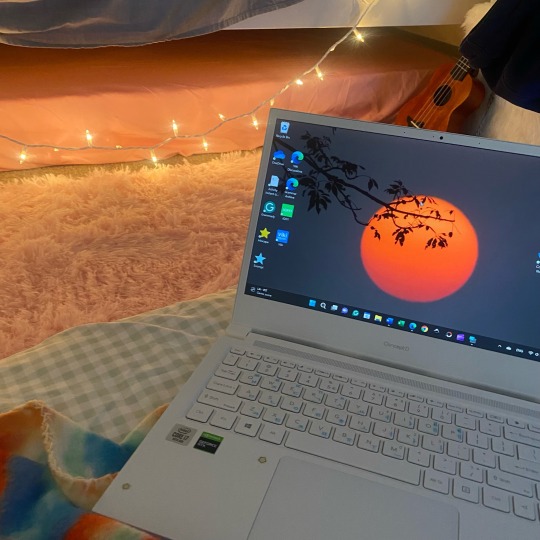
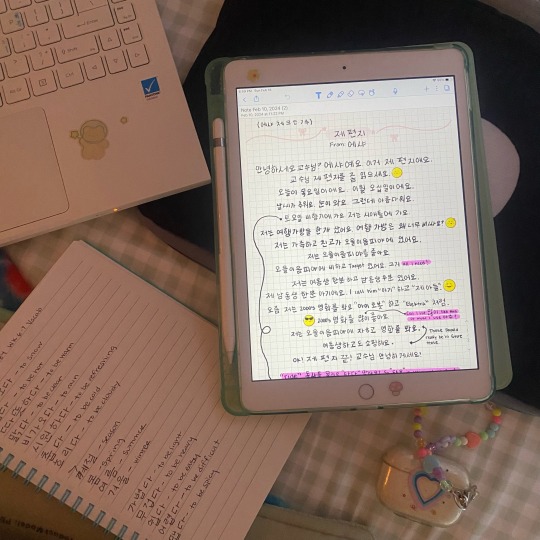
2.18.2024 — 오늘 제 여동생의 방에서 공부해요. 저는 너무 바빠. Besides the chapter quiz, which should really only take 십오 minutes or less, I’m literally taking the day off of work and studying to run errands and clean. 근데, 저는 책상을 샀어요. I’m sort of excited, mostly to decorate my space. It’s pretty small, but I’ll make it my own. Midterms are this week along with normal course work, so here we go!
#college student#studying#korean language#studyblr#language student#language study#studying at home#online student#student#language learning#study blog#study motivation#studying inspo#learning korean#student life#studying korean#hangeul#hangul#college work
183 notes
·
View notes
Text
Love for Love's Sake | Things You Didn't Notice #4 | Fight with Homophobes
Honestly, I wanted to dissect these scenes right away but then we got the rest of the show uploaded and the emotions overshadowed me. But now we're diving into informal Korean speech, swearing and slurs! It's going to be a fun post, let's go :D
Disclaimer: I'll be writing down both English and Korean slurs strictly in educational manner, obviously.
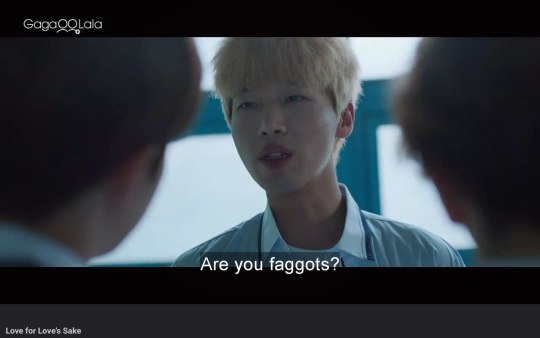
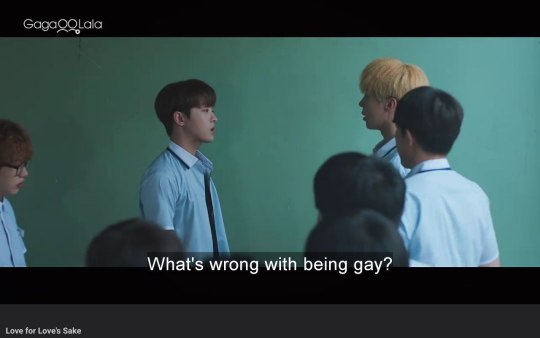
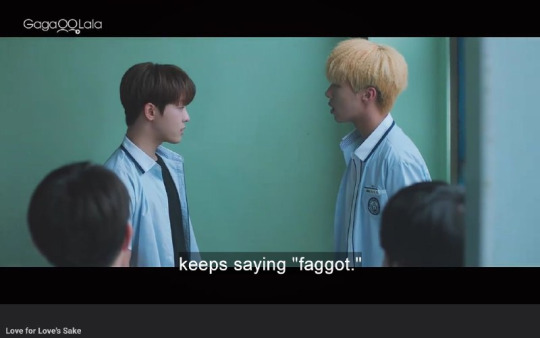
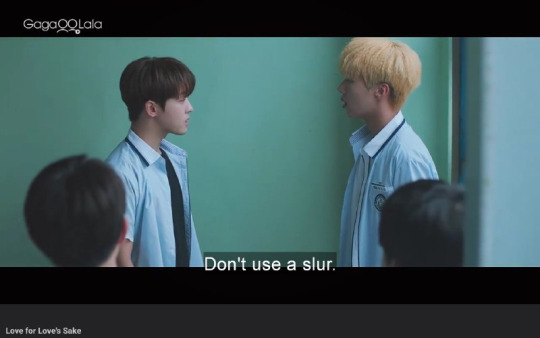
"Fuck. You two are always so fucking close together. (to Myungha) Are you also a faggot (homosekki)? Wow, Kyunghyun's skills are so good."
"Why are you so vulgar? What's wrong with being homo?"
"You're really crazy. Are you criticizing me?"
... (Myungha kisses Tak Junho)
" Ah fu— You damn faggot!"
"We both kissed. I'm not the only one who's homo. You're homo too~"
"You did it yourself, you faggot!"
"Ah, our Junho keeps saying 'homo'. Tss, slurs are forbidden."
"Shut up, you faggot."
"If you call me homo one more time, I can steal your lips for real. (Junho is silent) Ha, afraid you'll be robbed?"
Honestly, I like the translation in subs this time, I just wanted to give you a more technical version (and to show you the difference, because in Gaga subs the f slur is also used by Myungha but it's not exactly that)
So, as far as I noticed, the slur in Korean is a derivative from the term "homosexual" - thanks to the similar sounding, it became "homosekki" (from sekki - asshole, bastard, bitch etc). This is the word Junho keeps using in almost every sentence. And the socially accepted common term is now "gay" (at least, the cast and couple from Korean reality dating show "His Man 2" refers to themselves as 'gay' and not 'homo').
Myungha uses the original term, just "homo", which also gained a negative connotation but doesn't include a 'sekki' swearword. So he keeps saying "homo" to talk back in the language Junho used, only less derogatory. We'll see later but it's amazing, because both Myungha and Sangwon confidently used this word about themselves (Sangwon even went further and proudly reclaimed the slur itself).
Still, Myungha did threaten gangster Junho not to even call him "homo" or any similar terms. And here's the moment which made me laugh: in the next scene with Sangwon, Junho was angry ranting about Myungha, but he caught himself using the slur "homosekki" and quickly changed to the modern and neutral term "gay". LOL
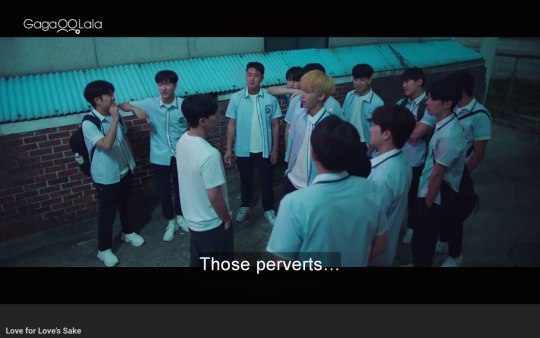
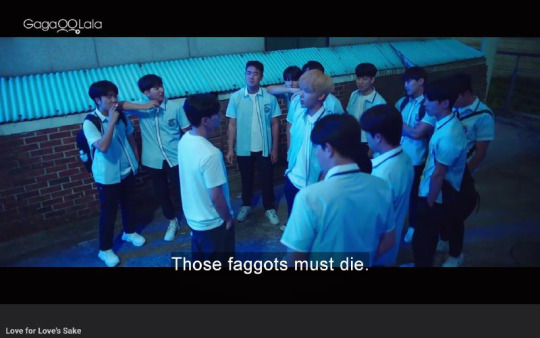
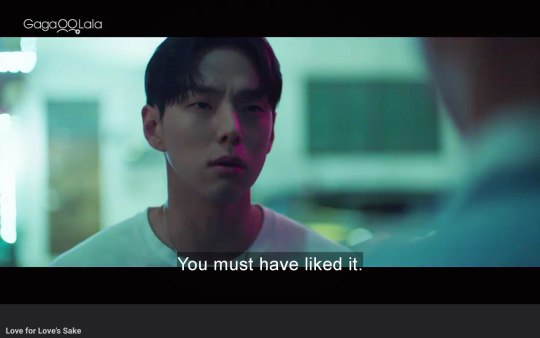
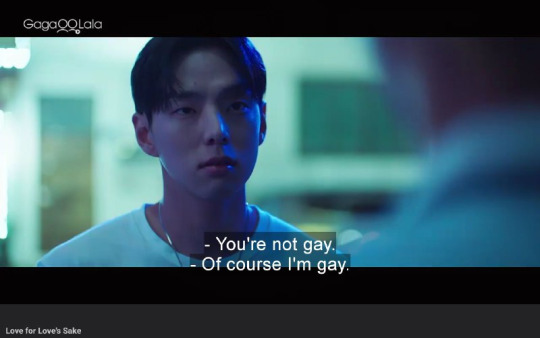
Which is what Gaga subs failed to show it to us. Again, let's see more technical translation:
"I'll go after Tae Myungha and Ahn Kyunghoon soon, just so you know. Those fa– Those gay bastards must die. That fucker Tae Myungha kissed me in the lips, shit. Isn't it fucked up? It was disgusting."
(Sangwon, pouting) "Wow, really? It must've been nice."
"Jeez, you asshole. You're not a victim so you dare talking shit."
"I'm being serious, though?"
(Junho, appalled) "What the hell are you talking about? You're not a faggot."
"I am a faggot, though?"
One, why is it so funny that the first reaction Sangwon had, hearing about Myungha kissing someone in a fight, was: awww :( i wish it was me :((( you so lucky :((
Second, it's hilarious how the gangster ends up the ONLY person who ever uses nice and modern term "gay" once in this show because our protagonists both hit him back with the derogatory terms (Sangwon even attached the slur to himself, when he only liked girls before falling in love with Myungha at first sight, what a legend).
Let's wrap it up with slurs and check out another small detail: informal speech in Korean.
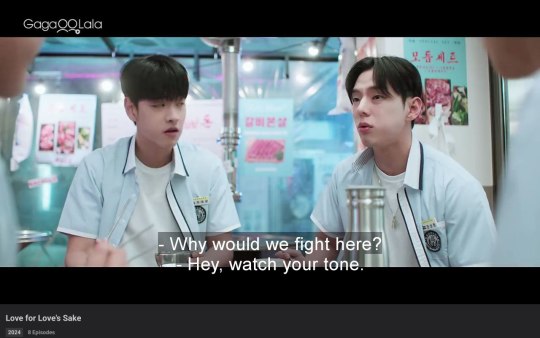
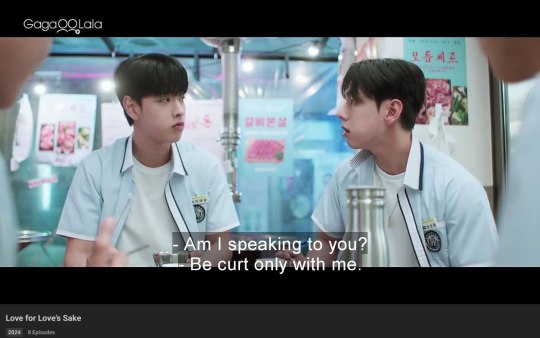
(Sangwon to Myungha)"Why would we fight here?"
(Yeowoon to Sangwon)"Hey, watch your tone (don't use informal speech)"
"Was I talking like that with you?"
"Talk curt (informally) only with me."
"I'm already being curt (talking informally) with you."
This one is definitely a cultural thing that always gets lost in translation (but "being curt" is a nice way of putting it). There are two general styles of speech in Korean: Formal (존댓말, jondemal) and Informal (반말, banmal). Of course, it's a lot more complicated in the language, but I'll paint briefly the differences that are pointed out in the scene.
I talked in previous posts about properly addressing your senior in korean (usually by title/position). To convey respect to your senior, you also use 요 (yo) at the end of the sentences – and both Sangwon and Yeowoon talk politely to Myungha. UNTIL Sangwon uses the rude version of a question, without polite ending ("Why would we fight here?"), to which Yeowoon protests and tells Sangwon that it's banmal, informal speech, and he should only use it with him.
Because with your friends, same age people (Yeowoon and Sangwon in this case) or people younger than you, it's normal to use their names with different intonations (Think Myungha's "Yeowoon-ah, Yeowoon-ie") and talk informally.
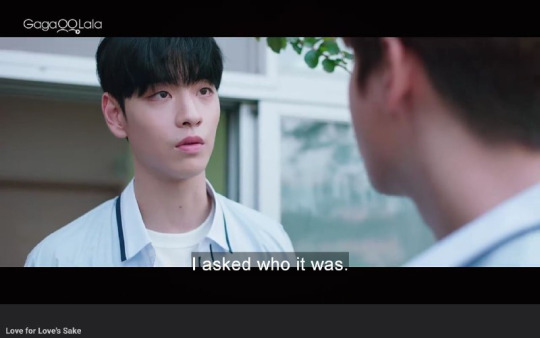
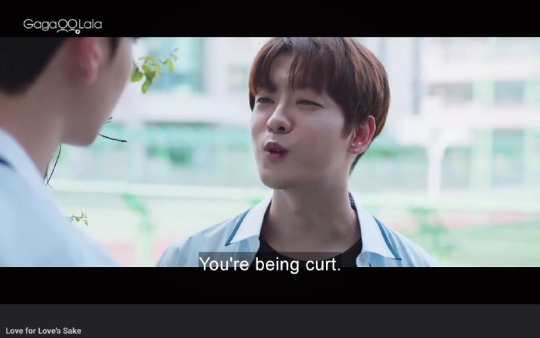
(Yeowoon to Myungha) "I asked who it was."
"You're being curt (that's an informal speech)".
Fast forward – Yeowoon loses patience and demands Myungha "I asked who it was", question without polite ending as well. To which Myungha cheekily says "that was an informal speech", reminding Yeowoon of his own remark to Sangwon.
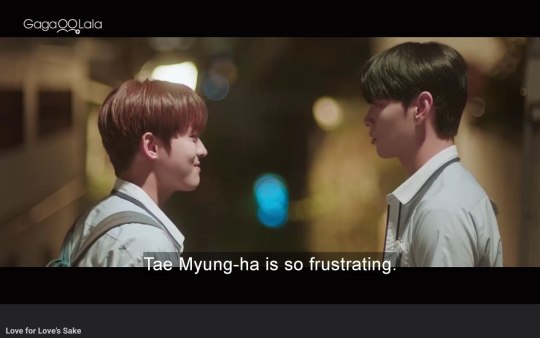
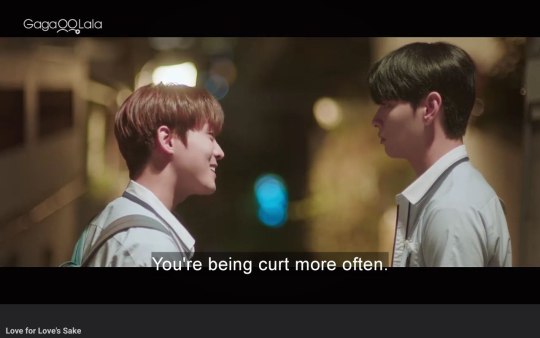
Fast forward again – and now I have to take back my previous statement from another post that Yeowoon never called Myungha by his name because I found the rare case of him doing it xD
"Tae Myungha is so frustrating."
"You're speaking informally more often these days."
Again, a youngster! calling his senior! by his own name! Not using the polite ending! The horrors of informal speech. He's not being too rude but he's sulking therefore he's rebelling. Though I can swear, again, Yeowoon hears Myungha's scolding and resorts back to speaking politely, and from now on, he'll keep using 'senior'.
If you survived until the end of this post, congratulations! The second half probably wasn't needed but in case you're learning Korean or you want to know why these seemingly normal phrases are being considered "curt" out of nowhere, I hope you understand it now a little bit better :)
// Previous messages translation + other language moments here //
#love for love's sake comments#watch me writing my own course Learning Korean with Kdramas on tumblr#but that fight dialogue scene was just perfect i couldn't resist#the exchange and usage of different terms was funny and the scene was hilarious on its own#sangwon and myungha are my heroes#love for love's sake#love for love's sake meta#bl meta#korean bl#korean drama#love supremacy zone#dropthemeta#korean language#linguistics#language
165 notes
·
View notes
Text
google drive of free korean language learning resources
hi everyone! because i put tutoring on hold while i am working full time but still want to provide help to those who want to start learning/want to practice their korean, i am continuously compiling material for free learning :)
resources are totally free!
most are typically aimed at children (which is great for beginners!!)
hangul practice
vocabulary building
printable/downloadable
example of scans:
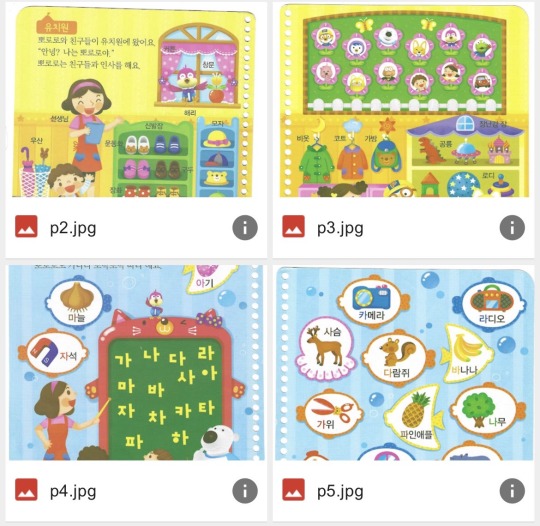
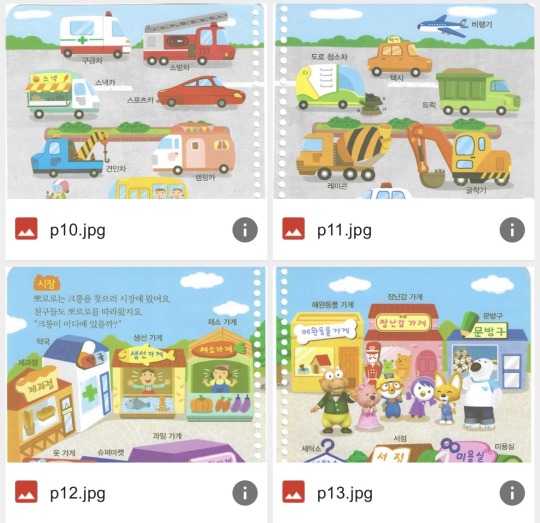
example of grammar breakdowns:
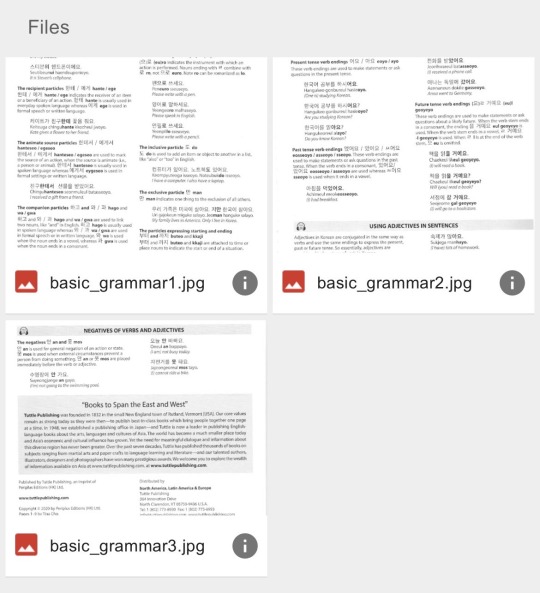
i will be adding material over the coming weeks and continuously as i come across material! updates may be frequent or slow down at times.
note: resources are free, and they’re totally free to share and use! but please do not repost without credit, and because i buy these from my workplace with my own money and spend time scanning them and cleaning them up and organizing them, please consider tipping me as much as you’d like ♥️
here is the link to the drive! (sorry, can’t hyperlink on mobile currently)
enjoy, and thank you in advance! have fun and feel free to ask me any questions—i am a korean studies grad and was a tutor for the beginning korean classes at my university. i am happy to help however i can!
♥️ joey
#ok about to tag the hell out of this sorry in advance#studyblr#study korean#korean#learning korean#hangul#learning hangul#beginner korean#korean study#korean studyblr#korean study notes#한글#한국어 공부하기#한국어공부중#한국어 배우기#korea#korean langblr#korean language#resource#language resources#korean learning#korean learning resource#OK ANYWAYS feel free to reblog like etc#just want to provide some help :)))
2K notes
·
View notes
Text
Bullfrog: This time of year reminds me of when the assassin brotherhood were all lost and I became the sole survivor of the entire creed
British branch of the Assassins creed: QUIT TELLING EVERYONE WE’RE DEAD
Bullfrog, who is French: les salauds britanniques ne comptent pas
#captain laserhawk spoilers#captain laserhawk#Assassins creed#Until we learn more I refuse to believe the entire assassins creed order is gone#So I’m choosing to believe it’s the French branch Bullfrog is the last off and he doesn’t wanna team up with brits or something#Also sorry I used Google translate I’m British and cannot learn languages#I am trying to learn a different language (korean) it’s just hard
209 notes
·
View notes
Text
one thing about learning languages is that yes, learning in itself is fun but what’s even greater is the fact that all your other interests and hobbies can be looked at with another shade of light. I personally love philosophy and to be able to read another language’s nuances and concepts and understand it more than you ever could with a translation? incredible.
#language learning#languages#langblr#learn chinese#learn french#learn german#learn korean#learn spanish#study korean#language#polyglot#philosophy
441 notes
·
View notes